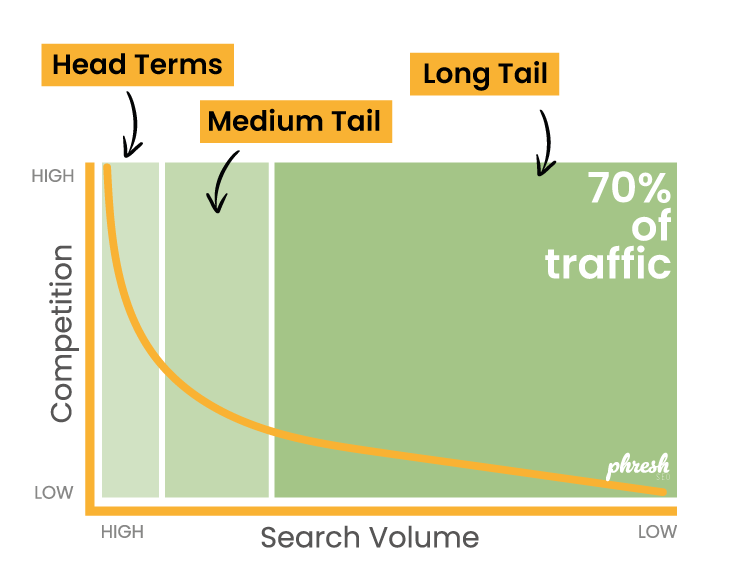
How To Generate A Topical Map Using Perplexity AI
May 14, 2024
Why we’re offering a guarantee on our SEO packages
May 16, 2024How to Do Keyword Research for Accountants: A Beginner’s Guide

Unlock SEO Success: Mastering Keyword Research for Accountants (SEO for Accountants)
For any industry, mastering keyword research is the key to a successful strategy, but it's particularly crucial in accounting SEO. This foundational step empowers you to uncover the precise search terms potential clients use when seeking financial services online. By understanding these keywords, you gain valuable insights into your audience's needs and can create a tailored search engine optimisation approach that resonates with your unique service offerings.
Keyword research goes beyond simply identifying popular words or phrases; it's a strategic process that measures search volume, competition levels, and overall relevance to your accounting services. Armed with this data, you can strategically optimise your online content to attract and engage the right clients effectively.
Walk a Mile in Your Clients' Shoes
Put yourself in the mind of your clients. When was the last time you searched for a single word to find something in Google? So, why do you think ranking high for the term "accountants" should be top priority? Think harder.
Once you get into your customers' mindset, you can really start to think about ways to increase your visibility. Brainstorming an extensive list of keywords or phrases that prospective clients might search when looking for accountants. Contemplate the following expanded list of local SEO keywords for accountants:
- Self Assessment Tax Returns In Middlesbrough
- Financial consultancy for small businesses
- Certified Chartered Accountant in my area
- Bookkeeping services in Middlesbrough
- Small business accountancy solutions
- Individual tax planning and preparation
- Payroll processing and compliance
- Business advisory services
- Tax audits and representation
- Financial statement analysis
The list could really be endless when doing any type of keyword research for SEO for accounting firms.
This exploration is crucial for search engine optimisation, ensuring your content resonates with the needs of your audience.
By broadening your scope to include these keywords and phrases, you can better align your offerings with the needs and expectations of potential clients. Ultimately you want to attract the right audience and foster enduring client relationships, a strategy that niche targeting can significantly enhance for accounting clients.
Harness The Power of Online Tools
Next, it's time to use one of the thousands (what it feels like) of online SEO tools at your disposal. Start by using the Google Keyword Planner. Enter your list of keywords, and witness a literal treasure trove of information.
Among the results, you will discover that "accountants near me" boasts high search volume and moderate competition, as you can see below. This keyword resonates with your target audience and sits perfectly with your business values and accounting expertise. Now, with this newfound insight, you can optimise your website and create content centred around it, attracting local customers searching for accountants or financial professionals and building that brand awareness through local SEO.

Keep Tabs on Your Competitors
The age-old adage "keep your friends close and your enemies closer" is very true in keyword research. (Now, I'm not saying you're all enemies, but you are rivals!)
Take a moment to study successful accounting websites in the local area. Observe their consistently high rankings in organic search results and visit their websites, look over their whole online presence, check their search visibility.
Scrutinise their content. Explore their page titles, headings, and blog posts. Check their backlinks. By doing this, you'll unearth a treasure trove of valuable information, which is crucial for effective content marketing and on-page optimisation.
Look at their content strategy, breathe it all in, then do it better!
Long-Tail Keywords: Unleash Your Secret Weapon
of all searches are for long-tail keywords
Long-tail keywords are the hidden gems that can give your business a competitive edge. Tools like Answer the Public are invaluable in generating long-tail keyword ideas explicitly tailored to your financial or accountancy service, but you can also just look at the Google rankings.
These search queries are essential for niche targeting.
As you explore, you might stumble upon phrases like "bookkeeping for small ecommerce business" or "experienced accountant for SaaS business." These long-tail keywords cater to niche audiences with unique needs. By incorporating them into your content, you can stand out from the crowd and attract accounting clients seeking precisely what you offer.

People are often mistaken when talking about long-tail keywords.
Long-tail keywords do not necessarily mean longer sentences, but instead more specific and targeted keyword phrases. The misconception arises from the name "long-tail" which implies length, but it actually refers to the long tail of the search demand curve, as seen above.
The 80/20 rule, also known as the Pareto principle, states that roughly 80% of the effects come from 20% of the causes. In the context of keywords:
- A small number of broad, popular keywords (the "head" terms) make up the majority of search volume. For example, a keyword like "accountant" would be a head term with very high search volume.
- A large number of highly specific, low-volume keywords (the "long-tail" terms) make up the remaining smaller percentage of overall search volume. An example would be "self assessment tax returns in Middlesbrough."
So while long-tail keywords tend to be longer phrases, the key distinction is their low search volume and very specific search intent, not necessarily the length of the search itself. The 80/20 rule highlights that despite individually low search volumes, the cumulative effect of ranking for many relevant long-tails can drive a significant portion of traffic.
The funny thing about head terms is, they are generally made up from a word which appears often in long-tail keywords. Take this for example:
Head Term: Accountants
Long-Tail Keywords:
- Accountants for small businesses in Middlesbrough
- Tax return accountants near me
- Payroll accountants in Teesside
So, as you can see from the above, the head term appears in all of the long-tail keywords. By ranking for this low hanging fruit of long-tail keywords, it will help you start ranking for the head terms and climbing those accountancy rankings.
Like I mentioned earlier, when was the last time you searched for just "accountants" instead of something like "best tax accountant for small businesses near me"? Thought so. Think harder and utilise local SEO to refine your search queries, making it easier for potential clients to find you.
Mastering long-tail keyword research is how you'll attract the website traffic you actually want - by showing up for the specific phrases they're using to find you. Nail the long-tail on the donkey, and SEO success in your accounting firm is inevitable.

The best place to hide a dead body is the second page of Google.
After years of experience in larger agencies, we noticed a significant gap in the market for smaller companies and startups that didn't have a massive budget to allocate towards SEO. Many SMEs and startups understand the importance of SEO but find the barrier to entry too high.
Free SEO Audit
Get in touch now for a free audit for your website. We offer free advise on how you can gain the most visibility for your website, even if you choose not to come on board moving forward.

